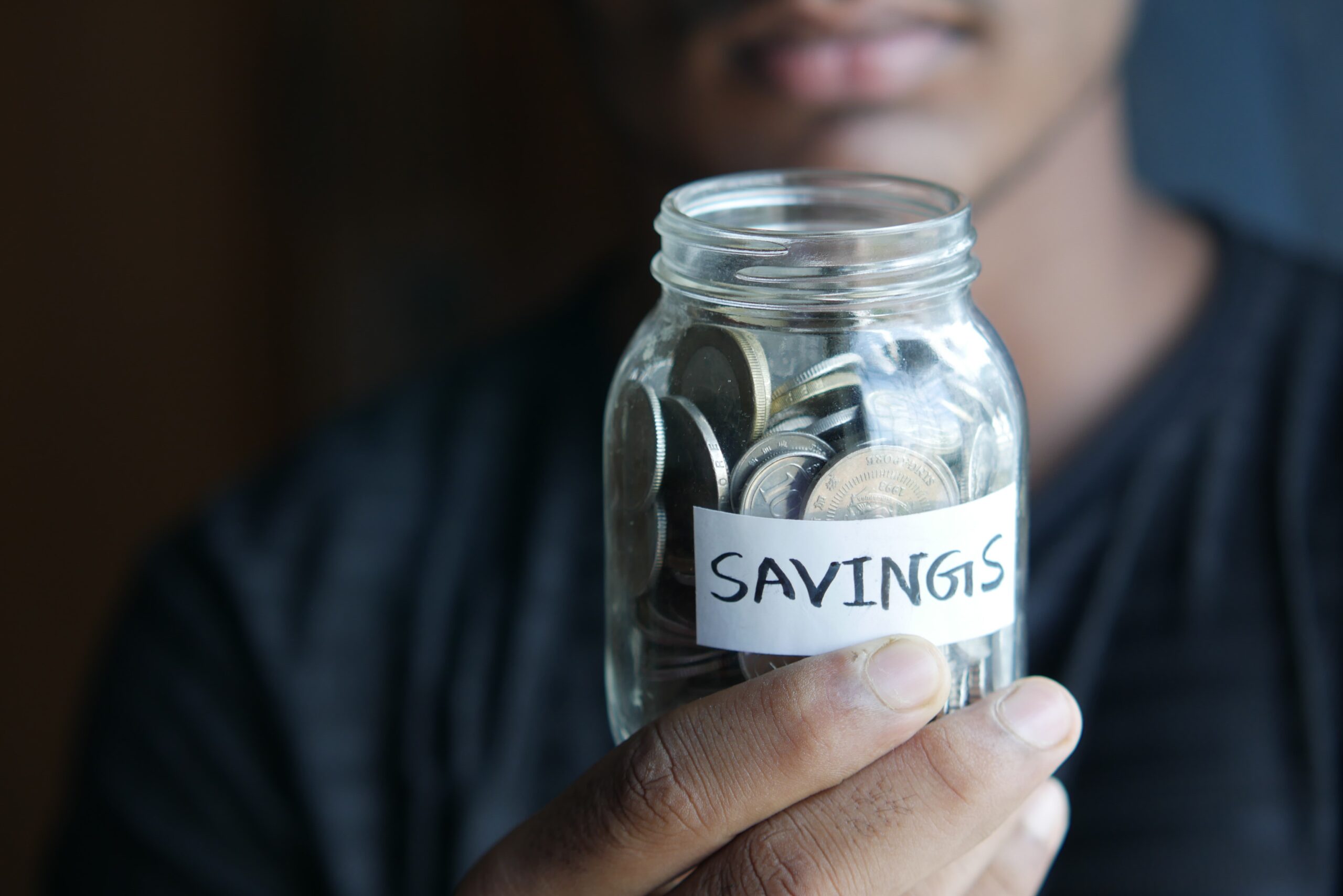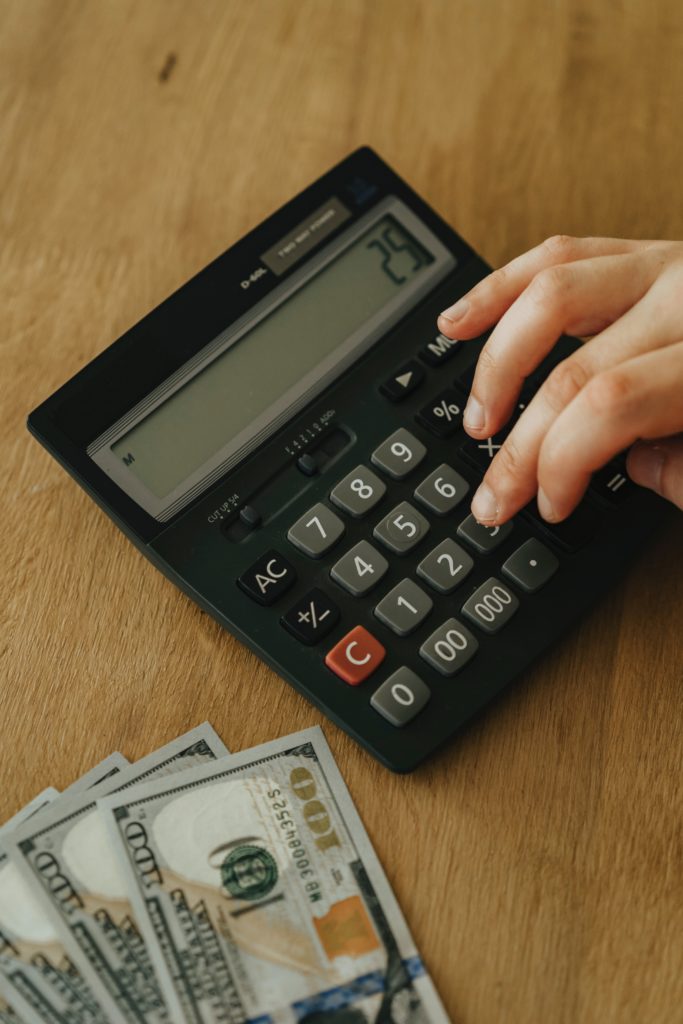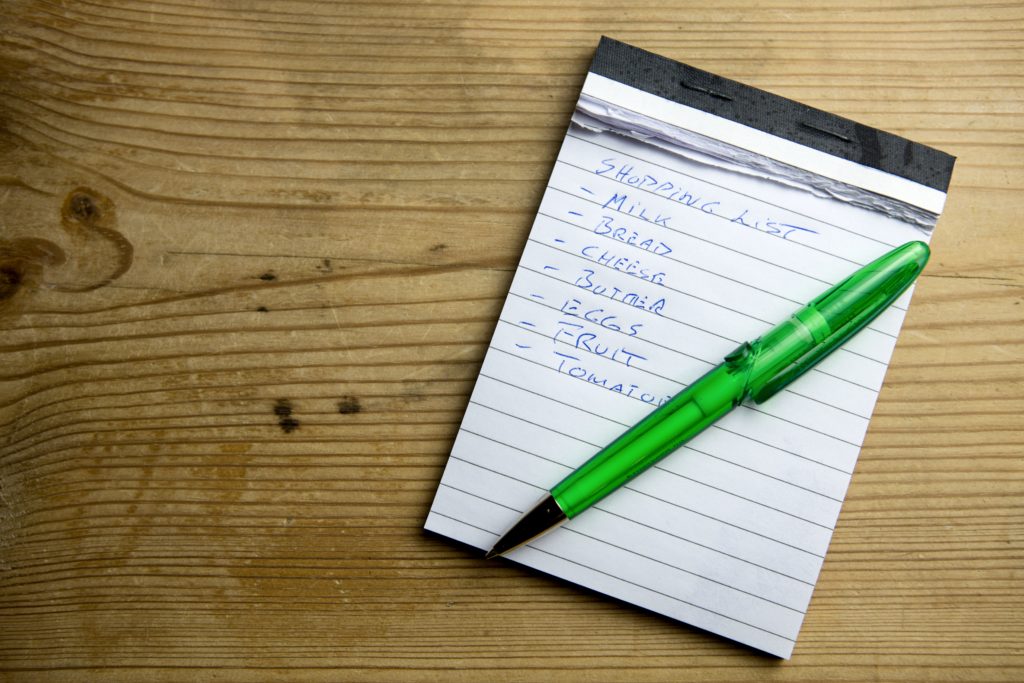

Good money habits: 12 easy ways to improve your financial situation
Let me be direct here.
Your goals will never be reached unless you set up the habits and processes to achieve them.
It can be a struggle to figure out what exactly you need to do to get your finances on the right track…but not any more. Let’s get you moving in the right direction!
When it comes to achieving financial goals (both short term and long term), there are 12 healthy financial habits that will help you get there no matter what you’re trying to accomplish.
As you’re looking through this list, don’t feel like you have to do all of them at once. Pick the one or two that resonate and you feel you can take quick action on. Progress beats perfection!
Here’s my list of 12 good money habits to improve your financial situation.
Table of Contents
Money Habit #1: Focus on having more money left over at the end of the month.

We get so bogged down with the minutiae of personal finance that we forget to focus on the one question that has the greatest impact on our financial future.
“How can we have more money left over at the end of the month?”
This is the very first thing to think about if you want to reach your financial goals.
It’s not always as simple as earning your way out of it. That rarely works, because if you spend everything that you earn, you won’t become wealthy no matter how much money you make.
Put all other financial questions to the side until you figure this out. Questions like:
“What debt should we pay off first?”
“How should I invest my money?”
“Should I do a Roth IRA or Traditional IRA?”
“What account should I use to save for my kids’ college education?”
“Should I work with a financial advisor?”
“When would be a good time to get into rental real estate?”
“Which bank account is paying the most interest?”
NONE OF THESE MATTER unless you have the money left over in the first place.
Focus all of your attention on finding more money at the end of the month before doing anything else. It’s the best indicator of your financial health and the greatest predictor of future financial success.
Money Habit #2: Track your spending
The easiest way to get better at spending is to track where your money is going.
That’s the most important starting point and the best advice I’d give to someone who is starting their family budget and trying to get their finances in order (as cited on Porch.com)
Sign up for a budgeting app where it will automatically pull in all of your transactions.
Spend 5 minutes a week reviewing your transactions from the last 7 days. Pay attention to not only the dollar amount, but take a look at how often you spend too.
It will help you gain awareness of your spending habits and where your money is going. You’ll also recognize the things you enjoy and the things you feel are wastes of money according to you.
If you’re wondering, “Why can’t I save money?” this habit will help you figure it out.
Money Habit #3: Count how often you spend each day
This works really well for my clients because it’s super easy.
It’s simple, the more often we spend, the more likely we are to overspend.
Rather than keeping track of how much money you spend, start tracking how often you spend.
Fill up your car? That’s one. Go to the grocery store? That’s two. Order something online? That’s 3. (and so on…)
Start counting how often you spend. If you’re spending more than 4x per day, then you’re probably wasting money by buying extra things you don’t really care about or don’t get used.
Money Habit #4: Start keeping a list of what you want to buy

Impulse buys can feel so urgent in the moment, but after waiting a little bit, we realize we can do without it (or at the very least, we don’t need it RIGHT NOW).
Companies have been working toward frictionless transactions meaning it’s easy as pie to get something you want and spend the money to do it.
One-click checkout, stored credit card information, Apple Pay, targeted email promotions, social media advertising and tracking, these are all things that make it easy to spend.
Grocery shopping without a list can be dangerous too. Not only do we leave with things we don’t need, but we also leave without the things we DO need. So then, we have to go food shopping again and leave with things we don’t need…again.
The less often you spend, the less you’ll spend.
It doesn’t mean you can’t buy what you want. If there’s something you really want, you can still get it…as long as it’s on the list.
Money Habit #5: Look at total cost not monthly payment
I don’t believe that you have to pay cash for everything, but monthly payments can be deceiving and get you into trouble.
They trick our brains into thinking that what we’re buying is affordable. Before subscribing to a monthly payment plan or Buy Now Pay Later, ask yourself,
“If I had to pay for this in full today, would I still buy it?”
If the answer is no, then avoid the purchase.
This will help you avoid what I call “payment stacking” which is where you start accumulating a bunch of “affordable monthly payments”. These payments all put together aren’t affordable after all and lead people into accumulating more debt than they intended.
Look at the total purchase price before making financial decisions. It will save you a lot of financial stress.
Money Habit #6: Plan ahead for irregular expenses
Non-monthly expenses can really break the budget and make people feel like they failed.
The good news is you can plan ahead, because most of these irregular expenses happen every year. We just forget about them.
Holidays, birthdays, family vacations, summer camps all seem to come from out of nowhere.
But a healthy money habit is to take the time to think through your year and figure out when these expenses happen, and plan ahead.
Money Habit #7: Focus your money

Most people are spread way too thin.
When you’re trying to do everything at once, it takes a long time before any one thing gets completed.
If you’re trying to start building an emergency fund while also saving for retirement, kids’ college, paying down credit card debt, and rounding up your auto payment, you’ll never finish anything for a long time.
Focus on one thing at a time and simplify your finances. You’ll feel that progress is being made and be able to stick to the plan.
Money Habit #8: Live below your means
Many people get into their 40s and feel like they’re financially behind, because they have experienced lifestyle inflation. It happens to the best of us.
There are more benefits to living below your means than there are benefits to living paycheck-to-paycheck but spending what you want when you want.
If you ever want to have the option to retire, it’s going to require you having extra money today to put towards that future.
The faster you want that time to come, the more important it is to have a big margin between your income and expenses.
Keep an eye on your major financial decisions like buying a house or car, and also track your day-to-day spending to make sure you don’t have death by 1,000 swipes.
Money Habit #9: Improve your savings rate – 50/50 Rule
The biggest predictor of your future financial success is your savings rate, the percentage of your income that you’re saving.
Most people think saving 10% is enough or they have a static target savings rate like 15%. But you can increase your savings rate through my 50/50 Rule.
Take at least half of any pay raises, bonuses, tax refunds, etc and add it to what you are currently saving monthly. Take the rest and feel free to spend it.
That way, you can spend money guilt-free while also ramping up your savings rate and increasing the speed of reaching financial independence.
The 50/50 Rule also works great if you’re in a relationship where one of you is a spender and one of your is a saver. This strikes a good balance and will help address each of your needs.
Money Habit #10: Commit to no credit card debt

Credit card debt is the gateway drug to financial ruin. Being ok with it is a bad habit with your money and can weigh you down like a ton of bricks.
Even if you have a 0% balance transfer, it’s important to close the door on any credit card balances that aren’t paid in full each month, because it’s a slippery slope if you get comfortable with any at all.
Expect more from yourself, simplify your life, and remove the weight of the credit cards.
Prioritize paying them off in full and never carry a balance again.
Money Habit #11: Get a student loan plan
Student debt can feel like a huge weight on your shoulders, but it doesn’t have to.
Federal student loans operate differently than any other kind of debt because there’s the ability to pay based upon income and the potential for loan forgiveness either tax-free through Public Service Loan Forgiveness (PSLF) or taxable loan forgiveness with income driven repayment plans.
If you owe more in federal student debt than what you earn or if you have qualifying PSLF employment (government employer or non-profit), there might be a better way to pay off your loans than approaching it the old fashioned way.
The best company out there for this is Student Loan Planner. There’s a ton of free content and calculators, cash back bonuses for refinancing student loans, and the option to build a custom student loan plan in a one-hour consult.
Commit to getting clarity on the best plan to pay them back. It could be transformational for you especially if you have six-figure student loans.
Money Habit #12: Read a book on raising kids to be good with money.

This has been a game-changer for me.
Once I started dedicating the time to read books on how to raise kids to have good money skills, I started to step up my game too, because it’s hard to teach your kids about money without wanting to set the example and improve yourself.
Books like The Opposite of Spoiled and Make Your Kid a Money Genius are great ones to start with.
Commit to checking out a book from the local library or downloading an audiobook to get started.
How can I improve my financial habits?
Now that we’ve listed out the 12 financial habits for success, think about what’s holding you back financially.
What are some bad money habits that are creating needless obstacles getting in your way of living your best?
After looking through this list of 12 healthy financial habits, which one or two do you think would make the biggest difference to improve your financial situation?
If you’re having trouble coming up with an idea, start with money habits 1 & 2. These are the keystone habits that will propel you in the right direction.
If you need help figuring out what direction to go in, you can always schedule a free 30 minute call with me to talk through it. I’d be happy to help!
Looking for help but don’t want to talk yet?




